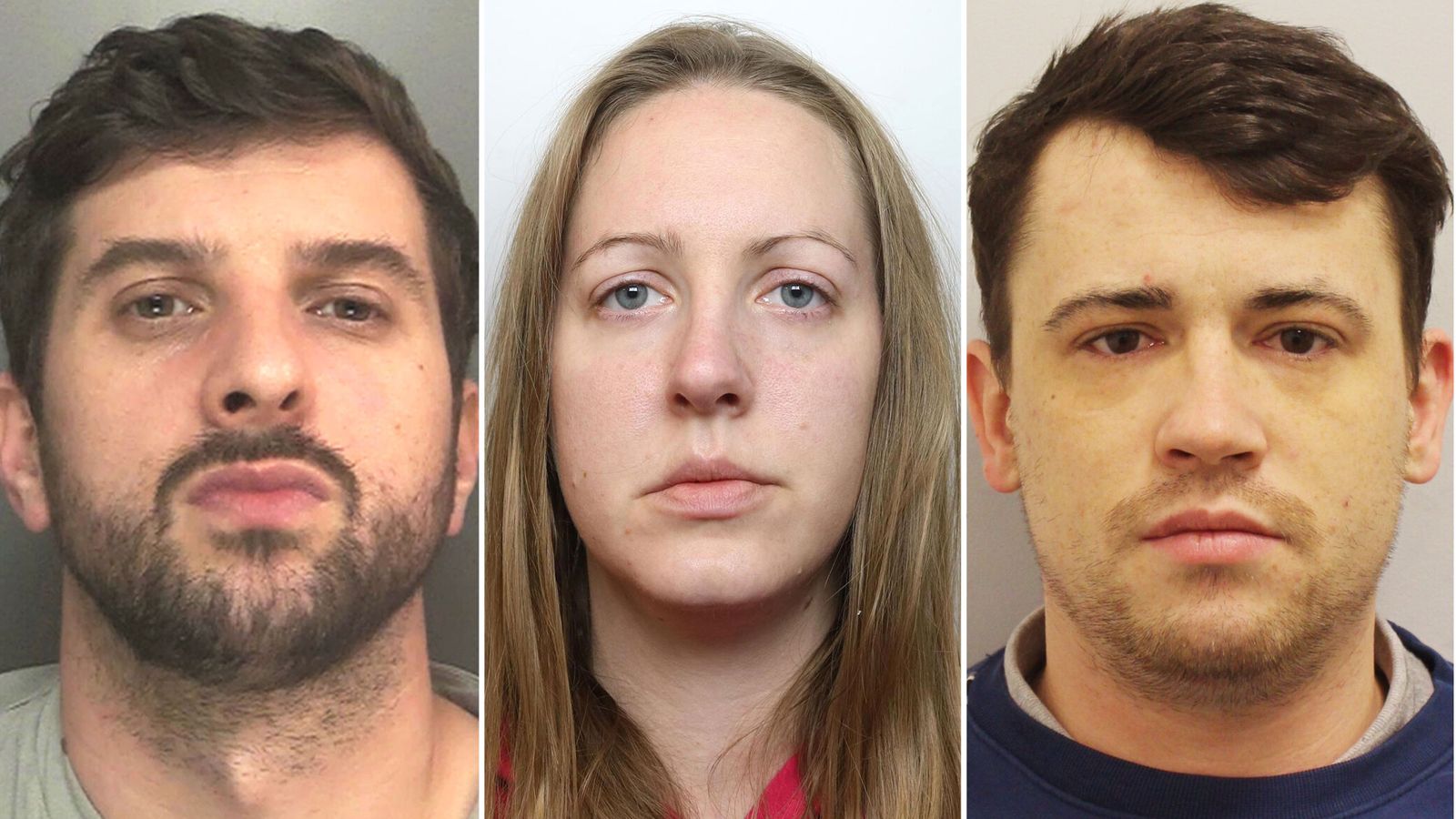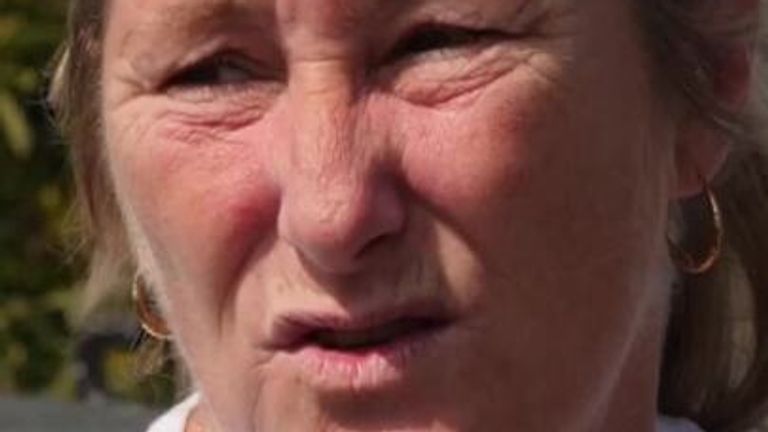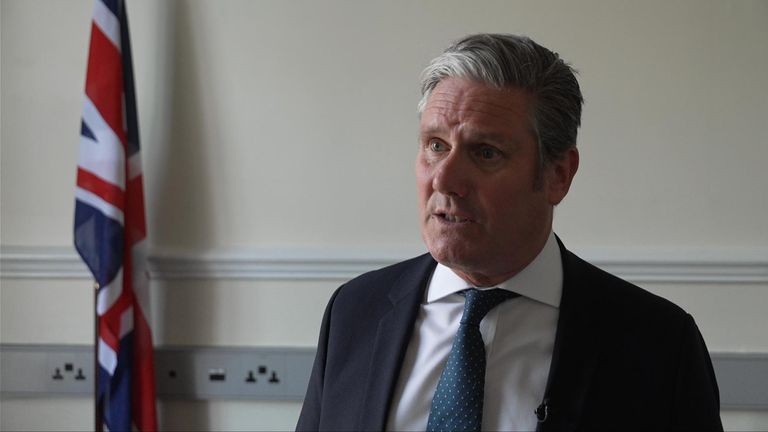Criminals to be forced to attend sentencing hearings or face longer in jail under government plans


A new law in England and Wales will force criminals to attend court while their sentences are read out, with the offenders facing two years longer behind bars if they still refuse to sit in the dock.
The government’s policy comes after the case of Lucy Letby, the neo-natal nurse convicted of murdering seven babies and attempting to murder six other infants, who became the latest criminal not to attend her own sentencing.
Her refusal to face justice saw calls for legislation, especially from bereaved families, growing louder.
Please use Chrome browser for a more accessible video player
2:52
Letby sentencing no-show ‘disgusting’
One relative of a victim of Letby’s described her decision to avoid the dock as a “final act of wickedness from a coward”.
The government confirmed its plans to introduce the reform on Wednesday, promising to create a new power for judges to make the order.
The change will also allow custody officers to use “reasonable force” to make offenders appear, “meaning every effort will be made for victims and their families to see justice delivered”.
However, the timetable for the legislation to be brought in is not yet clear – with Prime Minister Rishi Sunak only saying it would happen in the new session of parliament, starting in the autumn.
And the decision on whether to make the order will remain with judges, while prison staff and custody officers will be left to decide whether the use of force is reasonable and proportionate in each case.
Politicians have touted the idea before, with former justice secretary Dominic Raab outlining his intentions back in April after the murderer of nine-year-old Olivia Pratt-Korbel, Thomas Cashman, refused to appear in court.
Advertisement

It was one of a number of high-profile cases in recent years seeing offenders refusing to leave their cells, including at the sentencing of Hashem Abedi – the brother of Manchester Arena bomber Salman Abedi who was jailed for at least 55 years in August 2020 for his part in the atrocity.
And last December, Zara Aleena’s killer Jordan McSweeney refused to attend his sentencing.
‘The coward’s way out’
Speaking to reporters after the announcement, Mr Sunak said: “Like many, I was appalled that people that have committed awful crimes are somehow able to take the coward’s way out and not appear in court for their sentencing and to hear the impact that their crimes have had on the victims’ families.
“And that’s why we’re going to change the law so that courts can compel these offenders to be present for their sentencing and to hear the impact that their actions have had.”

Prisoners forced to attend court have shown ‘foul abuse’ towards families
However, Bryn Hughes, whose daughter PC Nicola Hughes was killed in 2012, warned against a “knee-jerk, headline-grabbing” response.
PC Hughes died alongside fellow PC Fiona Bone in a gun and grenade ambush while on duty in Tameside, Greater Manchester.
Mark Fairhurst, national chairman of the Prison Officers’ Association, said: “It’s great that they’re thinking about the victims, but in reality it’s going to be very difficult to enforce.
“We’ll have to increase staffing levels because it takes three members of staff to restrain one prisoner.
“What happens if they become abusive? What’s the impact on the victim’s family going to be then?
“People are going to get injured if they become violent. It’s extra pressure on our members. It’s a good idea in principle, but it’s going to be very hard to implement.”
“I have seen it from both sides of the courtroom,” Mr Hughes said.
“On being the father of someone who was murdered and being in court – and a former prison officer who has actually restrained someone into court – it is difficult.”
Click to subscribe to the Sky News Daily wherever you get your podcasts
He said prisoners who had been forced to attend courtrooms had shown “foul abuse towards the family” and had “abused the court, turned their back, kicked off, fought, spat, bitten people”.
“I wouldn’t want to see them dragged up into the dock shouting abuse about the final moments of your loved one.”
Read more:
Can criminals like child killer Letby be forced into court?
Zara Aleena’s killer jailed after refusing to attend sentencing
Please use Chrome browser for a more accessible video player

0:30
‘Many families feel a sense of injustice’ says Starmer
‘Turn words into action’
Labour leader Sir Keir Starmer welcomed the government announcement, saying: “The challenge now is to turn those words into action.
“Many families have campaigned on this, they have been through a horrendous ordeal, they feel a sense of injustice and there has to be proper closure. We will support this [policy] on a cross-party basis.”

Meanwhile, the inquiry into the Letby murders will be made statutory, with judges given the power to compel witnesses.
Health Secretary Steve Barclay confirmed the move following calls from lawyers of bereaved families to put the inquiry on a statutory footing so there was “nowhere to hide”.
There were fears a non-statutory inquiry would be “inadequate”, would lack “teeth” and would not have “the ability to make people answer [the] questions” that family members had.
Letby became one of just 71 people serving a whole-life order in England and Wales when she was sentenced earlier this month – meaning any change to the law to add extra years to her sentence would have not practically changed her punishment.
But under the proposed government plans, the judge could have acted to compel Letby to face the families of her victims.